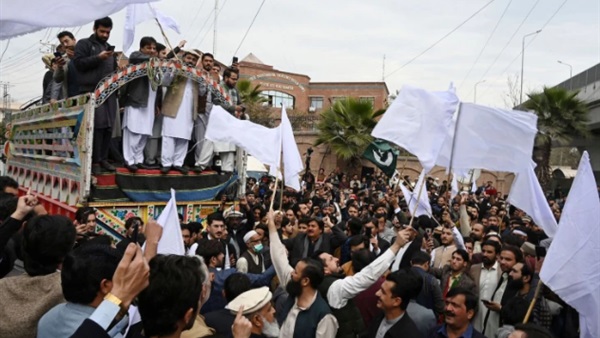Terrorism Resurges in Pakistan, Igniting Protests and Heightening Security Concerns

Protests against militancy and the powers that be are
increasing in Pakistan after a recent suicide attack on a mosque in Peshawar
killed 101 people, mostly police officers. The Jan. 30 bombing was one of the
deadliest attacks the country has seen in recent years, with a faction of the
Tehrik-i-Taliban Pakistan (TTP) claiming responsibility.
The attack has added fuel to ongoing protests in Khyber
Pakhtunkhwa province, where residents are making it known that they do not want
violence and lawlessness to return to the area. This outcry is particularly
strong among ethnic Pashtuns who grew up in cities and villages long impacted
by the tumultuous dynamic between the Pakistani military, militants in
Pakistan, and Afghan Taliban fighters across the border.
Since the Taliban took over in Kabul in 2021, Pakistan has
seen an uptick in terrorist attacks, especially in its border regions. The fact
that attacks have expanded beyond Pakistan’s tribal areas suggests the TTP has
regrouped from inside Afghanistan. In Khyber Pakhtunkhwa and beyond, the
resurgence in terrorism has stirred grievances against both the Afghan Taliban
and Pakistan’s military buildup, which protesters say has contributed to
insecurity.
The Afghan Taliban brokered peace talks between the TTP and
Pakistan last year, but the TTP ended an agreed cease-fire last November,
calling for fighters to carry out attacks throughout Pakistan.
The Pashtun Tahafuz (Protection) Movement, a Pashtun human
rights movement, is one of the groups that is most vocal about how the
Pakistani state approaches terrorism in the border areas. Its criticism of
Pakistan’s military establishment has led to a contentious relationship with
the government, and several members of the group’s leadership have been
arrested and jailed. In heavily militarized areas, the uptick in terrorism
brings a fresh feeling of foreboding. Last month, residents of Waziristan
province protested for days in response to recent attacks in the area. They
called for the state to empower police and local governments to address the
violence.
Attacks inside Pakistan have led to tension between
Islamabad and the Afghan Taliban regime. Leaders in Kabul have sought
international legitimacy based on the promise that they would not harbor
terrorist groups on Afghan soil. However, according to a July 2022 report from
the U.N. Security Council, as many as 4,000 TTP fighters are based across the
border in Afghanistan. In the months after the Taliban takeover, leaders in
Pakistan expressed hope that regional dynamics could change after decades of
unrest.
But, the peace talks allowed the TTP to regroup. Instead of
changing dynamics, Pakistan is left with a surge of terrorism and a population
fed up with the lack of safety and security.





